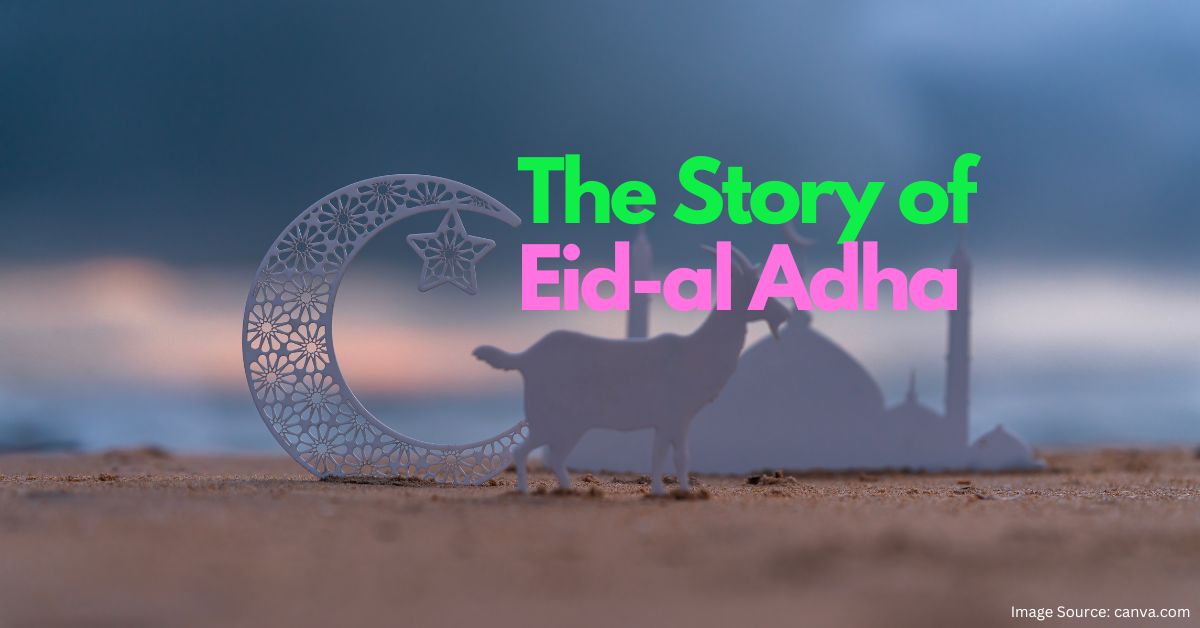Eid al Adha, also known as the “Festival of Sacrifice,” is one of the most important holidays in the Islamic calendar.
It commemorates the willingness of Prophet Ibrahim (Abraham) to sacrifice his son as an act of obedience to God (Allah).
This article will explain what Eid al Adha is and recount the story of Eid ul Adha in English.
Understanding Eid-al-Adha
Eid al Adha is a significant Islamic holiday observed by Muslims worldwide.
It marks the end of the Hajj pilgrimage to Mecca, a journey every Muslim is expected to make at least once in their lifetime if they can afford it.
What Happens During Eid al Adha?
During Eid al Adha, Muslims perform a special prayer in congregation, followed by a sermon.
They also make a sacrifice, usually a sheep, goat, or cow, to commemorate the sacrifice made by Prophet Ibrahim.
The meat is distributed among family, friends, and the needy, symbolizing charity and community.
The Story of Eid ul Adha
The story of Eid ul Adha in English begins with Prophet Ibrahim, a revered figure in Islam, Christianity, and Judaism.
He was tested by God to prove his faith.
Prophet Ibrahim’s Test
According to Islamic tradition, Prophet Ibrahim had a dream in which God commanded him to sacrifice his beloved son, Ismail.
Trusting in God’s wisdom, Ibrahim was ready to obey.
As he prepared to sacrifice his son, God intervened and provided a ram to be sacrificed instead.
Significance of the Sacrifice
This story symbolizes complete submission to God’s will and the importance of faith and obedience.
Muslims remember this event by sacrificing an animal, reflecting on the values of faith, devotion, and charity.
Celebrating Eid-al-Adha
Eid al Adha celebrations last for about three days.
Families gather for festive meals, exchange gifts, and give thanks for their blessings.
Community and Charity
One of the central themes of Eid al Adha is giving to others.
The meat from the sacrificed animal is divided into three parts: one for the family, one for friends and neighbors, and one for those in need.
This act reinforces the spirit of generosity and community.
Special Prayers
On the morning of Eid, Muslims attend a special prayer service at a mosque or an open prayer ground.
This gathering strengthens community bonds and allows people to reflect on the importance of the holiday.
Conclusion
Eid al Adha is a time of deep spiritual reflection, community bonding, and charity.
It teaches the values of sacrifice, obedience, and generosity.
By understanding what Eid al Adha is and the story of Eid ul Adha in English, we can appreciate the rich traditions and values that underpin this important Islamic festival.
In conclusion, Eid al Adha is not just a religious obligation but a reminder of the importance of faith, compassion, and community.
Through the story of Prophet Ibrahim’s sacrifice, we learn the significance of trust in God and the power of giving, which are the cornerstones of this beautiful festival.
Read related article: Ramadan Prayer Times


